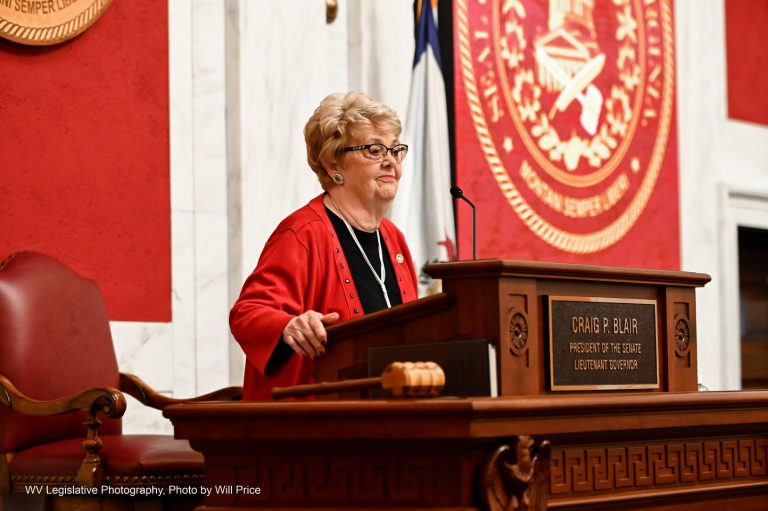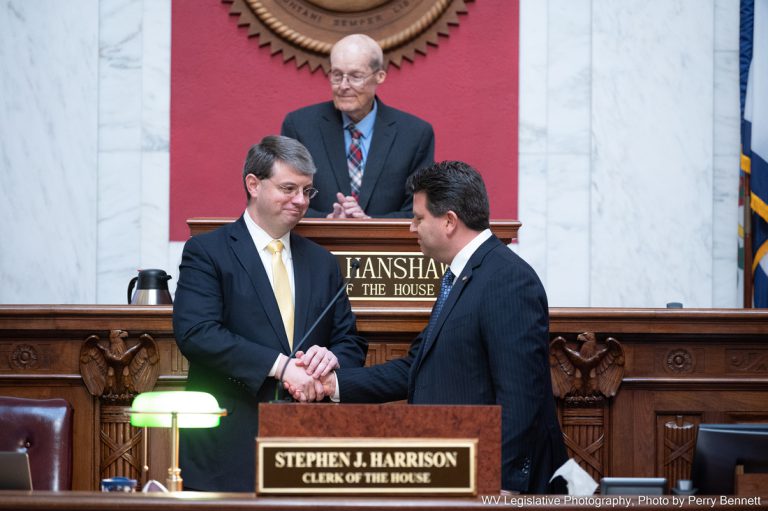The West Virginia Senate convened the 1st Session of the 86th Legislature today at Noon.
Sen. Donna Boley (R – Pleasants, 03) presided over the beginning of the floor session as the Senate’s longest continually serving member.
Following the presentation of certified election results by Secretary of State Mac Warner, and the swearing in of newly elected senators by West Virginia Supreme Court Justice C. Haley Bunn, members of the Senate nominated and reelected Sen. Craig Blair (R – Berkeley, 15) by acclamation to serve as President of the Senate.
Following the reelection of the President, Lee Cassis was reelected Senate Clerk, David Lavender was elected Senate Sergeant-at-Arms and Jeffrey Branham was reelected Doorkeeper. All were unanimously approved.
The Senate also adopted several resolutions relating to the Senate Rules and other organizational matters.
The Senate hit the ground running this afternoon, suspending constitutional rules and passing 23 bills on to the House of Delegates. The vast majority of today’s passed legislation was approved overwhelmingly by the Senate last year, but failed to complete legislative action in the House.
The first bill passed today, Senate Bill 126, would divide the Department of Health and Human Resources into three agencies: the Department of Health, the Department of Human Services, and the Department of Health facilities, with each agency having its own cabinet secretary.
Last year, the bill received wide, bipartisan support in both chambers as the Legislature concluded that the state’s largest agency was simply too unwieldy to carry out its mission and have a firm handle on its finances. The total annual budget for the Department of Health and Human Resources is $7.5 billion. The agency is tasked with dealing with a wide range of health and societal issues.
The Governor vetoed the bill last year, preferring to study the agency prior to making a determination.
The Senate also passed a bill to clarify that declared emergencies end after six months unless the Governor sends written notice to the Legislature extend the declaration. A related bill approved today limits gubernatorial authority to spend “certain federal funds” without appropriation of the Legislature. These bills were in direct response to the Governor’s actions during the Covid-19 pandemic.
The body also unanimously approved legislation this afternoon that addresses financial issues in the Public Employees Insurance Agency.
This became necessary last week when Wheeling Hospital publicly announced it would no longer be accepting PEIA payments as of July 1, 2023. Hospital officials have long said that financial challenges are compounded by PEIA’s 59 percent reimbursement rate, which is set by the state.
The Senate unanimously passed a bill in the 2022 session that would have reimbursed state medical providers for PEIA at a rate of 110 percent the Medicare reimbursement rate. That bill would have cost the state roughly $40 million. The bill failed to complete action in the House last year. The bill passed today in the Senate has the same provisions.
The Senate is in recess until 6:45 p.m., 15 minutes prior to the Governor’s State of the State Address.











